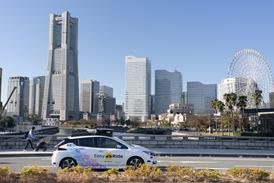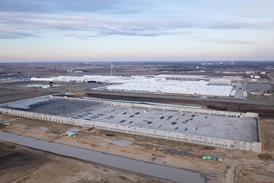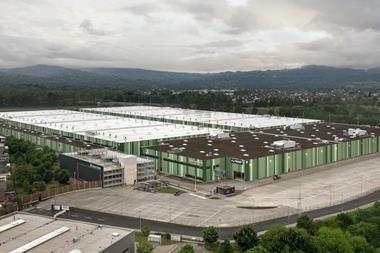 A strike by the French rail provider SNCF, involving its freight division along with passenger services, is now in its second week with no sign of a resolution. The situation is forcing shippers, including carmakers, to reorganise their transport and logistics plans. June is a busy month for freight shipments in France and road haulage capacity is reported to be tight, which is exacerbating the situation.
A strike by the French rail provider SNCF, involving its freight division along with passenger services, is now in its second week with no sign of a resolution. The situation is forcing shippers, including carmakers, to reorganise their transport and logistics plans. June is a busy month for freight shipments in France and road haulage capacity is reported to be tight, which is exacerbating the situation.
So far the action is estimated to have cost SNCF €80m ($108.5m) in lost revenue and refunds according to Guillaume Pepy, head of the company. According to local press reports the reforms are intended to tackle the rail sector’s debt, which stands at more than €40 billion and is set to almost double by 2015.
The strike is being held in protest at proposed government rail reforms that are under debate in the French parliament. Included in those discussions is the proposal to unite SNCF with the RFF rail network, which could open up the French state-owned rail network to competition. Fret SNCF workers in CGT and Sud-Rail unions fear that the reforms will lead to a fragmentation of the company and the subsequent loss of jobs, as well as the loss of security associated with state rail employment. There are also concerns about the risks to quality of service.
A spokesperson for Fret SNCF acknowledged the wide impact of the strike on the rail network across France, as well as the automotive industry.
“The strike currently affecting rail transport in France has of course operational consequences for all industry sectors, which operate traffic on rail, whatever the operator,” she told Automotive Logistics. “As such, automotive is affected as much as other sectors are. Fret SNCF is doing best efforts to limit the impact as much as possible on its customers.”
The company provided no further detail on those efforts.
The latest action follows a similar 36-hour national strike by workers at Fret SNCF in December last year.
French-based carmakers, including Renault-Nissan and PSA Peugeot-Citroën, are reserving comment on the impact to their inbound and outbound deliveries. While Renault-Nissan refused to comment, a spokesperson for PSA said only that so far the strike has had a limited impact.
The impact on inventory levels at the carmakers does indeed seem to be limited so far, with no reports of an escalation in priority shipments of inbound parts suggesting inventory at the carmakers was not yet affected.
“At the moment there has only been a very marginal increase in requests for France and it is difficult to say whether this is related to the action by SNCF,” said Neal Williams, group managing director at emergency logistics provider Priority Freight. “We have not been advised that there has been any disruption of inbound components to any plants yet.”
Priority Freight is handling in the region of 400 expedited movements a day across Europe for most OEMs and tier suppliers.
“We should be in a position to learn about any significant production supply pressures quickly,” added Williams.
The company did record a significant amount of premium transport during the first week of the strike, though that resulted from rail disruption caused by storm damage in Germany according to Williams.
There was a similar story over at rival expedited services provider Evolution Time Critical, though its managing director Brad Brennan told Automotive Logistics that lead time buffer stocks are now in need of replenishment.
“The French rail strikes come at a traditionally busy time, when OEMs should be looking at re-energising buffer stocks ahead of the seasonal shutdowns of suppliers,” he said. “Evolution Time Critical has not been called into action as a direct consequence of the current strikes, but we may see this change in the coming weeks as the effects of prolonged action gradually send shockwaves through the supply chain.”
Brennan added that lead times mean that manufacturers may not yet be feeling the effect of strike action fallout and that they provide the opportunity to implement contingency measures.
“[However], such times provide an undoubted test of manufacturers’ supply chain visibility and ability to react swiftly to prevent ongoing disruption.”







































